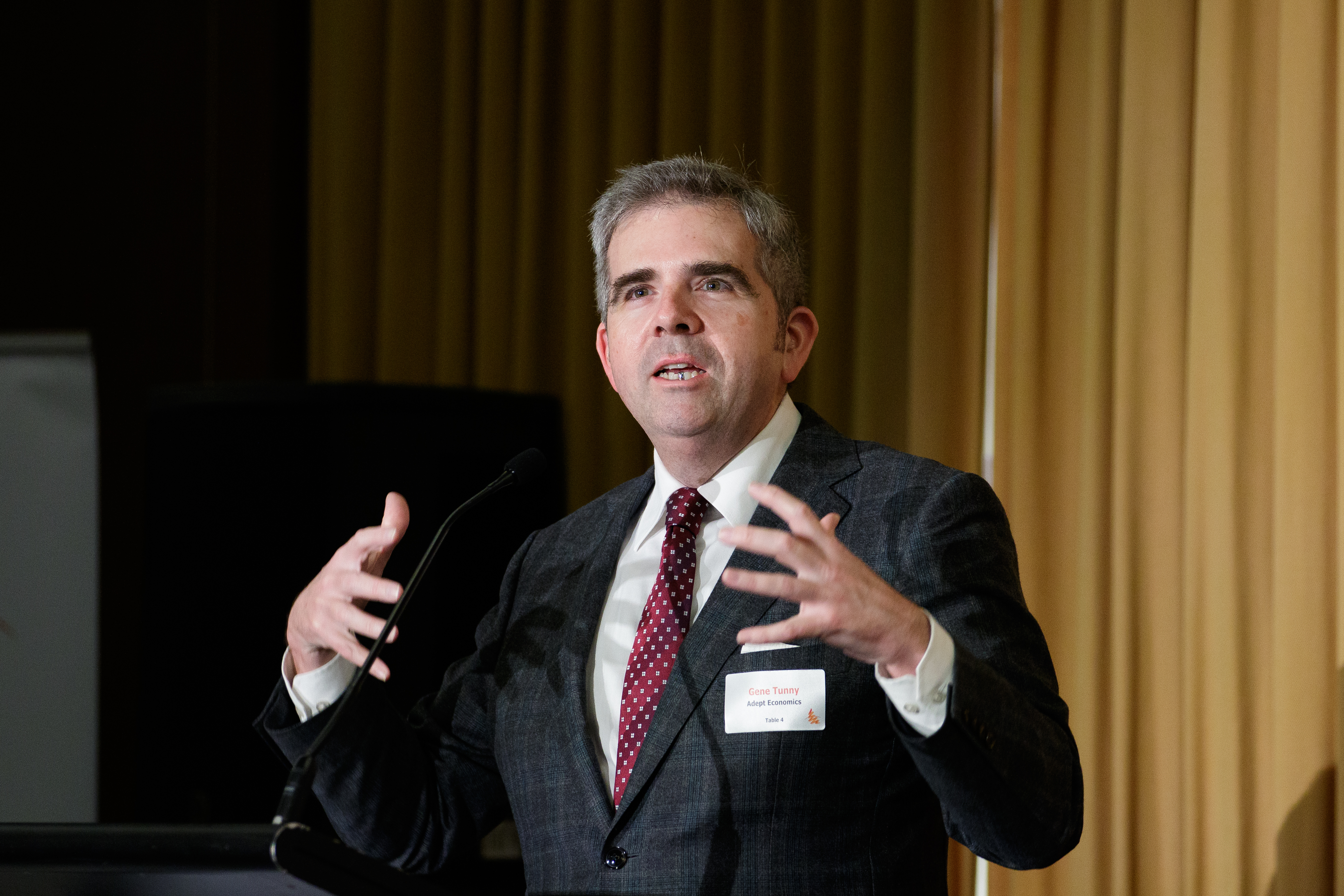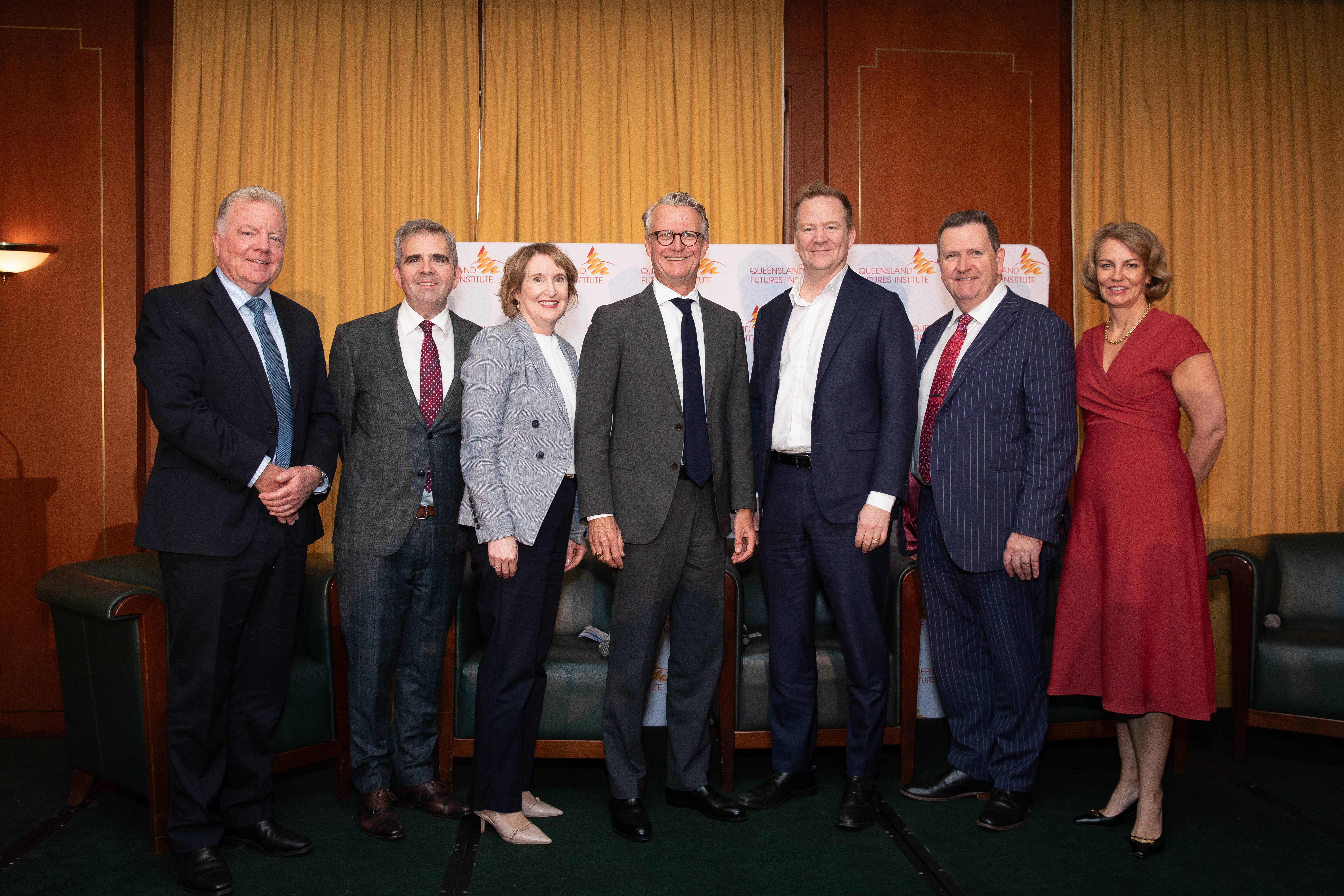Queensland’s Economic Outlook 2025: Key Insights from the QFI Forum
Queensland’s Economic Outlook in a Changing World
The Queensland Futures Institute (QFI) hosted its annual Queensland’s Economic Outlook breakfast on 10 September 2025, bringing together prominent economists and other experts to discuss Queensland’s growth prospects amid global uncertainty.
Gene Tunny, Director of Adept Economics, moderated the session, which featured leading voices including Dr Karen Hooper (Commissioner, Queensland Productivity Commission), Jo Masters (Chief Economist, Barrenjoey Capital Partners), Jon Berry (Director, Geopolitics Hub, KPMG Australia), Richard Yetsenga (Chief Economist, ANZ), and Brian Parker (Chief Economist, Australian Retirement Trust).
Gene Tunny’s Key Messages
As moderator, Gene Tunny highlighted that Queensland’s economy is deeply connected to global events — from geopolitical tensions to trade policy and climate risks. He noted:
- Housing market pressures are intensifying as supply struggles to keep pace with demand, which has been boosted by high interstate and international migration.
- The 2032 Olympic Games will generate opportunities but also test delivery capacity.
- Energy policy must balance decarbonisation with affordability and reliability, especially for regional industries.
- A review of Queensland’s coal royalty regime and broader tax policy settings is needed to support long-term competitiveness.

(Gene Tunny as moderator)
Economic Outlook – Forum Highlights
- Global uncertainty: Jon Berry described a “G-Zero World” (reflecting that unilateral initiatives and armed conflicts have reduced the relevance of G20 or G8 cooperation forums) with rising geopolitical risks and trade instability. However, not all is bad news; according to Richard Yetsenga, the global economy is still growing at about 3%. He noted that if we focus too much on what’s wrong, we risk missing what’s right.
- Construction productivity: Dr Karen Hooper reported construction sector productivity growth of just 5% in 30 years, with a 9% decline since 2018, constraining housing supply. In other words, Queensland now has less productive capacity to deliver the housing and infrastructure needed. For example, she noted that if productivity had stayed at 2018 levels, Queensland could have delivered 77,000 more dwellings, boosting housing supply and easing affordability concerns.
- Tax reform: Jo Masters noted momentum to shift taxation from income to wealth, addressing intergenerational inequality. She stated that while there is a real need for a frank national dialogue, it’s unlikely that we will see reform in this matter, but the debate will build ahead of the 2028 election.
- AUKUS opportunities: Queensland is poised to benefit from advanced and dual-use technologies under Pillar 2 of the defence partnership (which focuses on developing advanced capabilities of the Parties). Jon Berry noted that Queensland has big firms such as Raytheon, NIOA, and PsiQuantum that could exploit this opportunity.
- Climate transition: Brian Parker emphasised that climate change presents both risk and investment opportunity, combining renewables with gas firming for energy reliability.
- Migration and workforce: The forum agreed that the constraint lies in specialised labour supply — calling for better targeting of Australia’s migration program toward the skills we need (e.g., construction trades).
- Technology and AI: The panel discussed the potential of artificial intelligence to lift productivity. The consensus was clear: Australia must accelerate its technology adoption and reduce regulatory barriers that hinder innovation.
Looking Ahead
The 2025 QFI Forum reinforced that Queensland’s economy faces significant constraints—particularly in construction productivity and housing—but also substantial opportunities across technology, defence, and energy.
Under Gene’s moderation, the discussion underscored the importance of evidence-based reform, global awareness, and pragmatic policy responses to ensure sustainable growth in the decade leading to the 2032 Olympic Games.
The complete report is available at this weblink.

Pictured (from left to right): Steve Greenwood, Gene Tunny, Dr Karen Hooper, Richard Yetsenga, Jon Berry, Brian Parker, and Jo Masters.